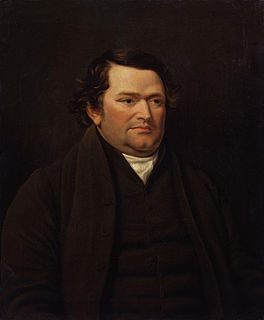A Quote by Harold Pinter
Don't forget the earth's about five thousand million years old, at least. Who can afford to live in the past?
Related Quotes
Some of these people think the universe is five thousand years old, and they say it with a straight face. If somebody had an explanation saying why they thought the earth was five thousand years old, there's only two possible explanations: you're really stupid, or you're really cynical and trying to get really stupid people's votes.
Also, having grown up in England, you walk around London, you're passing relics that are a thousand years old - the wall of London is a thousand years old. You don't talk about it, it's part of your everyday life. The idea that people are in these environments and talking about the past and what happened, it's irrelevant. It's all about living and in this world it was about surviving.
It has taken biologists some 230 years to identify and describe three quarters of a million insects; if there are indeed at least thirty million, as Erwin (Terry Erwin, the Smithsonian Institute) estimates, then, working as they have in the past, insect taxonomists have ten thousand years of employment ahead of them. Ghilean Prance, director of the Botanical Gardens in Kew, estimates that a complete list of plants in the Americas would occupy taxonomists for four centuries, again working at historical rates.
The planet earth has a life span of eight billion years, give or take a few million. People have been around for approximately forty thousand years-a virtual blink in the cosmos. It is sad that we as a species are ravaging the natural world so fast that we are jeopardizing our survival. If we wipe ourselves out, it would be the height of folly, but the earth will survive even us. It will eventually restore itself. It might take a few thousand years, and it won't be just as it was before, but its life is stronger than death.
Remembering that Eratosthenes of Cyrene, employing mathematical theories and geometrical methods, discovered from the course of the sun, the shadows cast by an equinoctial gnomon, and the inclination of the heaven that the circumference of the earth is two hundred and fifty-two thousand stadia, that is, thirty-one million five hundred thousand paces.
Old customs are easy to forget with the flashing of events in our lives. Easy to forget, like the heavy clothing we once wore to survive the winters. It is an old custom, the handing down of things. A good knife, a well-made pipe, a heavy robe. Tradition falls prey to constant change, and creativity becomes so revered that the past is a relic, only to be admired. But in this coat, I was held to the earth, pulled to the past by its weight.
In my childhood I was obsessed with cameras but could not afford one. After much persuasion my father Harivansh Rai Bachchan bought me a box camera which I treasured for years. Initially I clicked trees and nature and as I grew up started noticing prettier things-motorbike, sleek cars and cool girls. But the hamartia of life is when you desire something you cannot afford it and when you are able to afford it you are too old to use it. Now I don't need all gadgets but it's satisfying to know that at least I can afford them.
There are millions of different species of animals and plants on earth--possibly as many as forty million. But somewhere between five and fifty BILLION species have existed at one time or another. Thus, only about one in a thousand species is still alive--a truly lousy survival record: 99.9 percent failure!
Seventy-five years. That's how much time you get if you're lucky. Seventy-five years. Seventy-five winters, seventy-five springtimes, seventy-five summers, and seventy-five autumns. When you look at it like that, it's not a lot of time, is it? Don't waste them. Get your head out of the rat race and forget about the superficial things that pre-occupy your existence and get back to what's important now.




































